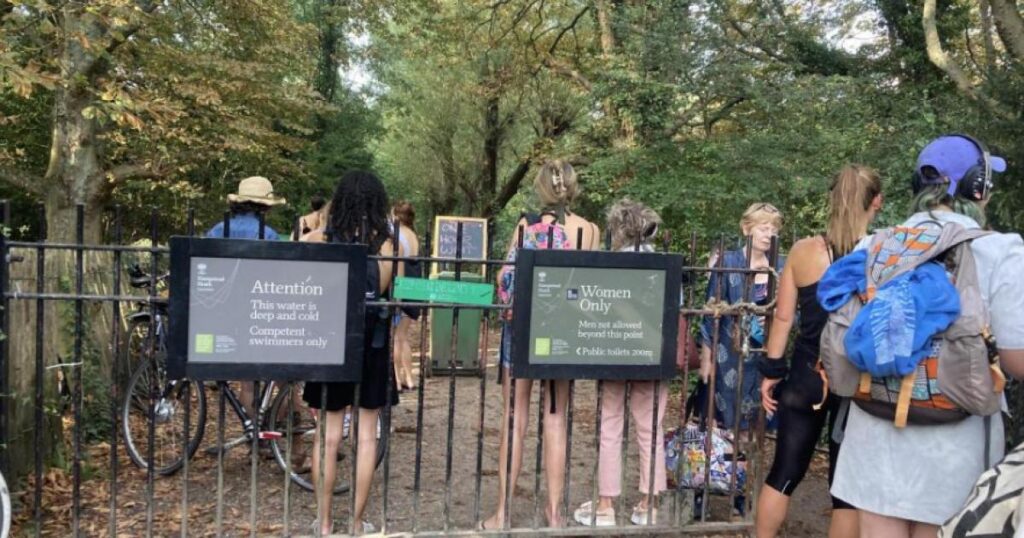The UK Supreme Court last week ruled on how a woman is defined in the Equality Act 2010, deciding unanimously that this does not include transgender women who hold gender recognition certificates (GRCs).
The ruling means that transgender women with a certificate can be excluded from single sex spaces such as toilets, changing rooms, single-sex hospital wards and women’s refuges “if proportionate”.
One such space is the Kenwood Ladies Pond, which was created in 1925 and is one of three historic swimming ponds on Hampstead Heath, the other two being a men’s pond and a mixed pond.
In 2010 the City of London Corporation, which manages the Heath, changed its policy to allow trans women to use the ponds in line with the Equality Act.
Following the Supreme Court ruling, a CoLC spokesperson said: “We are carefully considering the judgement.
“We remain committed to providing a safe and enjoyable environment for all.”
Protests from groups opposed to trans women swimming there have also affected the Kenwood Ladies Pond Association (KLPA), which does not run the pond or govern who has access to it, but is a volunteer-led group representing its users.
In March last year, a bid to change the KLPA constitution “so that only those born female in sex can use the pond” was defeated in a vote by around three quarters of members.
Pauline Latchem and Beth Feresten, co-chairs of the volunteer-led KLPA, said in a statement that the subject should be handled with sensitivity and asked that “all parties concerned think before making any statements”.
They added: “Individuals will have their own views about the Supreme Court ruling. The Ladies’ Pond is open to all women and girls over the age of eight and, according to the lifeguards, trans women have been swimming there for many years without incident.
“The Ladies’ Pond is well staffed by lifeguards and stewards who are there to ensure the safety and wellbeing of all users.”
They added: “As the KLPA is not responsible for managing the pond, including defining who is allowed to access the pond, it is unlikely that the Supreme Court ruling is relevant to the KLPA’s existence or activities.”




